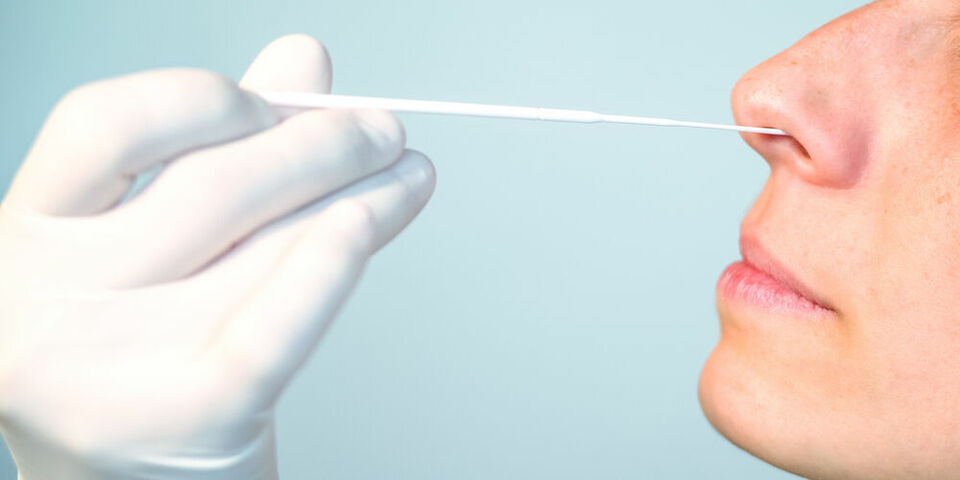Three in ten students order free self-test
Only a small number of students in higher education and secondary vocational education are placing orders for free self-tests; 29 percent is fewer than the Minister had expected. However, 61 percent of staff members are making use of the service provided by the ministry.
Since 5 May, the self-tests have been available for order via zelftestonderwijs.nl. They are free because the government hopes that students and staff will test themselves as a precaution - before they have any symptoms - if they go to the campus.
When the tests had been available for only a few weeks, and the secondary vocational education sector was not yet included, 18 percent of the students and 37 percent of the staff placed an order. So those percentages have now risen.
Orders
The Ministry of Education tells HOP that up to 3 November a total of 381,576 students asked for a package of four self-tests. That is 29 percent of all the students in higher education and secondary vocational education. Of the 100 thousand plus staff members, more than 61 percent ordered the free tests. An average of two test packages per person were requested.
Expectation
A spokesperson for the Minister says that “many students” have made a request via the portal but that “we had initially expected more”. She adds that, however, a large number of the students are already vaccinated and that they could also get hold of self-tests elsewhere. For example, they are on sale at drugstores and could be ordered free of charge in the summer via rijksoverheid.nl.
In addition, the ministry sent tests to educational institutions by van and truck. Between 19 April and 19 October the higher education institutions received around 2.6 million self-tests by those means.
The number that have actually been used is unknown. But to “avoid large stocks on site, since September self-tests have been delivered only on request”, the Minister wrote last Friday to the House of Representatives.
Ineffective
The Ministry of Education has spent €48.3 million on items such as dispatching the self-tests and the associated campaign. That is exclusive of the cost of the tests themselves, for which the Ministry of Health, Welfare and Sport reserved €350 million.
The tests are not worth that much, in the opinion of Frits Rosendaal, professor of epidemiology in Leiden. “It achieves very little”, he says. Measures such as social distancing and a COVID pass are, in his view, much more effective in the event that the pressure on hospitals necessitates new measures.
“I can also understand why students are reluctant to use the test, because it isn’t a very pleasant test.” He is actually surprised that around thirty percent of the students did order the test, especially as the teaching is still not all taking place on the campus.
Advice
Lisanne de Roos, chair of the Dutch National Students' Association, is not yet entirely satisfied with the number of students that are asking for self-tests, even though she feels the figures do not give a complete picture of the willingness to take the test. Since last summer the Outbreak Management Team has been calling on unvaccinated people in particular to get tested as a precautionary measure. “In higher education that is only a very small number”, says De Roos.
She is not yet seriously concerned about the number of requests because “the vaccination rate among students is going in the right direction.”


Discussion